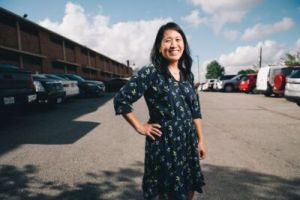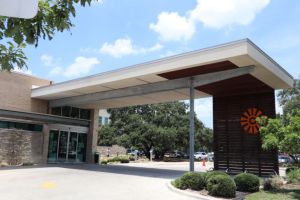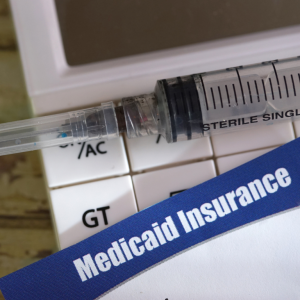By Dr. Nicholas Yagoda
You may have heard mention in the local news or social media about young people in Central Texas overdosing on the drug fentanyl.
What you may not know is that many of the victims had no idea they were taking fentanyl, a tasteless opioid drug similar to morphine, but much more potent. Compared to other opioids, fentanyl is particularly dangerous because it can be deadly in extremely small doses. How deadly? The amount of fentanyl that can balance on your pencil point can fatal and the drug can take many forms — pill, powder, patch, solid or liquid. There is no way to make sure fentanyl is evenly distributed, so each pill can be the one that causes an overdose.
In recent years, an increasing supply of illegal drugs combine fentanyl with other more well-known drugs, the ones that young people often experiment with at parties or in friend groups. Many individuals have no idea what they are consuming. It can be made to look like other well-known drugs such as oxycodone, Percocet, Xanax or even Adderall.
Some versions of the drug can resemble candy – think Sweet Tarts and other small, colorful candies — as a way to target teens and young adults. Physicians and school officials are asking for increased vigilance, especially as music festival season and Halloween approaches. Teens should never share medications, and even items that look like candy should be wrapped in known commercial packaging before consumption.
Last year in Travis County, 118 people died of fentanyl overdoses, and the vast majority were accidental. This year since June, four Hays County high school students have died of fentanyl-related overdoses. For reference, more people in Travis County died of drug overdoses in 2021 than died in traffic accidents, falls or drowning. The increase caused Travis County commissioners to declare the opioid problem in the county a public health emergency.
The Austin Independent School District is working on a plan and awareness campaign and student resource officer carry naloxone (Narcan), the drug that can neutralize the effects of an overdose to give time for someone to seek medical care. Other districts, including Eanes and Hays, have Narcan available in their school nurses offices.
Families who have reason to suspect that a loved one may be at risk for fentanyl overdose due to suspected or known drug use can access Narcan without a prescription at local pharmacies including Walgreens and CVS. Some providers, including CommUnityCare Health Centers, can provide Narcan to patient families and are working toward wider community distribution this Fall. Organizations in the state of Texas can obtain Naloxone at www.morenarcanplease.com.
Additional safety tools include fentanyl test strips which detect this potentially fatal substance if used to lace or as a substitute for other drugs. However, these potentially lifesaving test strips are not yet available legally in Texas.
This video shows how to recognize and respond to these symptoms of overdose:
- Difficult or not able to awaken
- Slow or no breathing
- Unresponsive
- Bluish or pale lips and fingernails
- Limp body
- Pale or clammy skin
- Vomiting or foaming at the mouth
Please call 9-1-1 immediately, start giving rescue breaths, and administer Narcan, if available. For more information about how to combat fentanyl and opioid use in teens, or to access support and treatment options, call the CommUnityCare Addictions Recovery team at 512-978-9401 or visit www.soberaustin.com.
Dr. Yagoda is chief medical officer at CommUnityCare Health Centers.
NOTICE: HANCOCK WALK-IN CARE CONSTRUCTION
Access to Hancock Walk-In Care is affected by construction. Please use the linked directions for the easiest way to reach the clinic.
Directions to Hancock Walk-In Care








